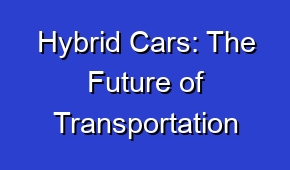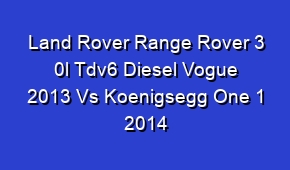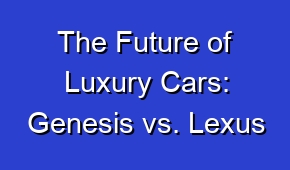Hybrid Cars: The Future of Transportation

Hybrid cars are revolutionizing the automotive industry, paving the way for a greener and more sustainable future. With their combination of electric and gasoline power, these vehicles offer improved fuel efficiency, reduced emissions, and lower operating costs. Discover how hybrid cars are shaping the present and driving us towards a cleaner tomorrow.
Hybrid cars are revolutionizing the automotive industry, paving the way for a greener and more sustainable future. With their advanced technology and environmentally-friendly features, hybrid cars are becoming increasingly popular among consumers. These vehicles combine the power of an internal combustion engine with an electric motor, resulting in reduced emissions and improved fuel efficiency. The future of transportation lies in these innovative machines, as they offer a viable solution to combat climate change and reduce our dependence on fossil fuels. Moreover, hybrid cars are not only beneficial for the environment but also for drivers, as they provide a smooth and quiet driving experience. As the demand for hybrid cars continues to grow, manufacturers are investing heavily in research and development to improve their performance and affordability. It is evident that hybrid cars are no longer just a concept, but a reality that is shaping the future of transportation.
| Hybrid cars combine the benefits of gasoline engines and electric motors. |
| They are more fuel-efficient, reducing emissions and environmental impact. |
| Hybrid cars use regenerative braking to recharge their battery while slowing down. |
| These vehicles offer a smooth and quiet driving experience with low noise levels. |
| Hybrid cars are becoming increasingly popular due to their cost savings on fuel. |
- Hybrid cars contribute to a cleaner environment by emitting fewer pollutants.
- They offer improved fuel efficiency, resulting in reduced dependence on fossil fuels.
- The advanced technology in hybrid cars allows for seamless switching between the engine and electric motor.
- Hybrids have a longer driving range, making them suitable for longer trips.
- The resale value of hybrid cars tends to be higher compared to traditional vehicles.
What are the benefits of hybrid cars?
Hybrid cars offer several benefits that make them an attractive option for many drivers. One of the main advantages is their improved fuel efficiency. The combination of a gasoline engine and an electric motor allows hybrid cars to consume less fuel compared to traditional gasoline-powered vehicles. This not only helps drivers save money on fuel costs but also reduces their carbon footprint and contributes to a cleaner environment.
| Reduced Fuel Consumption | Lower Emissions | Financial Incentives |
| Hybrid cars use a combination of an internal combustion engine and an electric motor, resulting in significantly lower fuel consumption. | Hybrid cars produce fewer emissions compared to traditional gasoline-powered vehicles, contributing to cleaner air and reduced environmental impact. | Many governments and organizations offer financial incentives, such as tax credits or rebates, for purchasing hybrid cars, making them more affordable. |
| Regenerative Braking | Improved Fuel Efficiency | Quiet and Smooth Ride |
| Hybrid cars utilize regenerative braking technology, which converts kinetic energy into electric energy, increasing overall efficiency. | Hybrid cars often have higher fuel efficiency ratings, allowing drivers to save money on fuel costs in the long run. | Electric motors in hybrid cars provide a quieter and smoother ride compared to traditional gasoline-powered vehicles. |
In addition to fuel efficiency, hybrid cars also tend to have lower emissions. The electric motor in hybrid cars produces fewer emissions compared to internal combustion engines, resulting in reduced air pollution. This is particularly important in urban areas where air quality is a concern.
How do hybrid cars work?
Hybrid cars combine an internal combustion engine with an electric motor to provide propulsion. The two power sources work together or separately depending on driving conditions to optimize fuel efficiency and performance.
- Hybrid cars combine a gasoline engine with an electric motor to power the vehicle.
- The gasoline engine is responsible for generating power and recharging the battery while the electric motor provides additional power and assists the engine during acceleration.
- When the car is idle or moving at low speeds, the hybrid system can switch off the gasoline engine and rely solely on the electric motor, reducing fuel consumption and emissions.
During low-speed or stop-and-go driving, the electric motor powers the vehicle, drawing energy from the battery pack. This allows for zero-emission driving and reduces fuel consumption. When more power is needed, such as during acceleration or high-speed driving, the internal combustion engine kicks in and works alongside the electric motor to provide additional power.
Are hybrid cars more expensive to maintain?
Hybrid cars generally have similar maintenance costs to traditional gasoline-powered vehicles. However, there are a few factors that may affect the cost of maintenance for hybrid cars.
- Hybrid cars typically have more complex systems, which can lead to higher maintenance costs.
- Hybrid car batteries may need to be replaced after several years, which can be an expensive repair.
- Specialized mechanics with knowledge of hybrid technology may be required for maintenance and repairs, which can be more costly than regular car maintenance.
- Hybrid cars often require specialized fluids and filters, which can be more expensive than those used in conventional cars.
- Due to the advanced technology in hybrid cars, repairs and replacements of parts may be more expensive compared to conventional cars.
One factor is the complexity of the hybrid system. Hybrid cars have both an internal combustion engine and an electric motor, which means there are additional components that may require maintenance or repair. However, advancements in hybrid technology have made these systems more reliable and less prone to issues.
Are hybrid cars better for the environment?
Hybrid cars are generally considered better for the environment compared to traditional gasoline-powered vehicles. This is primarily due to their lower fuel consumption and reduced emissions.
| Reduced Emissions | Energy Efficiency | Resource Conservation |
| Hybrid cars produce lower emissions compared to conventional vehicles. | Hybrid cars are more energy efficient and require less fuel. | Hybrid cars use fewer non-renewable resources. |
| Lower greenhouse gas emissions contribute to combating climate change. | Regenerative braking and engine shut-off technology help conserve energy. | Hybrid cars reduce the dependency on fossil fuels. |
| Reduced air pollution improves air quality and human health. | Hybrid cars utilize both electric and gasoline power sources. | Hybrid car batteries can be recycled and reused. |
By combining a gasoline engine with an electric motor, hybrid cars can achieve significantly higher fuel efficiency. This means they consume less fossil fuel and produce fewer greenhouse gas emissions, such as carbon dioxide, during operation. As a result, hybrid cars contribute to reducing air pollution and mitigating climate change.
What is the future of hybrid cars?
The future of hybrid cars looks promising as automakers continue to invest in hybrid technology and improve its capabilities. As concerns about climate change and air pollution grow, there is a growing demand for more sustainable transportation options.
The future of hybrid cars looks promising with advancements in technology and growing environmental concerns. Hybrid cars, future, technology, environmental concerns
One direction for the future of hybrid cars is the development of plug-in hybrid electric vehicles (PHEVs). These vehicles have larger battery packs that can be charged from an external power source, allowing for longer electric-only driving ranges. This reduces reliance on the internal combustion engine even further and provides a more environmentally friendly option for drivers.
What are the different types of hybrid cars?
Hybrid cars come in various types, each with its own characteristics and advantages. The main types of hybrid cars include:
The different types of hybrid cars include parallel hybrids, series hybrids, plug-in hybrids, and mild hybrids.
– Parallel hybrid: In this type, both the internal combustion engine and the electric motor can directly power the vehicle. The power sources work together or separately, depending on driving conditions.
– Series hybrid: In a series hybrid, the internal combustion engine acts as a generator to charge the battery pack, which then powers the electric motor that drives the vehicle. The engine does not directly power the wheels.
– Plug-in hybrid: These hybrids have larger battery packs that can be charged from an external power source. This allows for longer electric-only driving ranges compared to conventional hybrids.
– Mild hybrid: Mild hybrids have a smaller electric motor that assists the internal combustion engine during acceleration and other high-power demand situations. They cannot operate solely on electric power.
– Full hybrid: Full hybrids, also known as strong hybrids, can operate on electric power alone, gasoline power alone, or a combination of both. They offer the most flexibility in terms of power sources and efficiency.
What is the difference between a hybrid car and an electric car?
The main difference between a hybrid car and an electric car lies in their power sources. Hybrid cars combine an internal combustion engine with an electric motor, while electric cars rely solely on electricity for propulsion.
1. Power Source
A hybrid car is powered by both an internal combustion engine (usually gasoline) and an electric motor. The electric motor is typically used at lower speeds and during acceleration, while the internal combustion engine kicks in at higher speeds or when more power is needed. On the other hand, an electric car is solely powered by an electric motor that runs on electricity stored in a battery. It does not have an internal combustion engine and does not require any gasoline or other fossil fuels.
2. Fuel Efficiency
Hybrid cars are generally more fuel-efficient than traditional gasoline-powered cars, but less so compared to fully electric cars. The combination of the internal combustion engine and electric motor allows hybrid cars to achieve better fuel economy and reduce emissions compared to conventional cars. However, electric cars have the advantage of not using any gasoline at all, resulting in zero tailpipe emissions and lower overall energy consumption.
3. Charging and Range
Hybrid cars do not need to be plugged in for charging. The electric motor in a hybrid car is charged through regenerative braking, where the energy from braking is used to recharge the battery. This means that hybrid cars have an unlimited range and can be refueled at any gas station. On the other hand, electric cars need to be plugged into a charging station or a power outlet to recharge their batteries. The range of an electric car can vary depending on the battery capacity and driving conditions, and longer trips may require planning for recharging stops.
Hybrid cars use both gasoline and electricity to power the vehicle. The internal combustion engine provides power when needed, such as during high-speed driving or when the battery is depleted. The electric motor assists the engine and can also power the vehicle on its own for short distances.





















